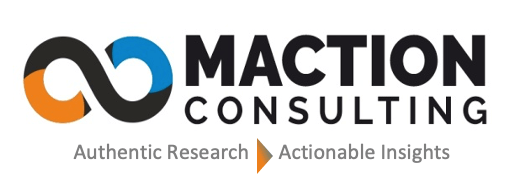The landscape of market research is undergoing a seismic shift, moving beyond the realm of traditional surveys and focus groups. At the forefront of this revolution is neuroscience, a discipline that delves into the complexities of the human brain. By studying brain activity, researchers are gaining unprecedented insights into consumer behavior, preferences, and decision-making processes.
Tapping into the Brain: Neuroscience Tools Transforming Market Research
Neuroscience offers a unique lens through which to examine consumer psychology. By employing advanced neuroimaging techniques such as electroencephalography (EEG) and functional magnetic resonance imaging (fMRI), researchers can measure brain responses to stimuli in real-time. This provides a direct window into consumers’ subconscious reactions, revealing their genuine emotional and cognitive responses to products, brands, and marketing messages.
For instance, EEG can detect subtle changes in brainwave patterns associated with attention, engagement, and emotional arousal, while fMRI can pinpoint specific brain regions activated during decision-making processes. These tools empower marketers to identify the elements of their campaigns that resonate most deeply with consumers, enabling them to optimize their strategies for maximum impact.
Mind Matters: Enhancing Marketing Strategies with Neuroscience Insights
The integration of neuroscience with traditional market research methodologies offers a powerful approach to understanding consumer behavior. By combining brain-based data with demographic, psychographic, and behavioral information, marketers can develop a comprehensive and nuanced view of their target audience. This holistic perspective allows for the creation of highly targeted and personalized marketing campaigns that resonate on a deeper level.
Consider the concept of implicit memory, which refers to information that is unconsciously retained and influences behavior. Neuroscience can help uncover these implicit associations and preferences, providing valuable insights into consumer decision-making. By understanding the underlying motivations and emotional drivers behind consumer choices, marketers can craft messages and experiences that tap into these subconscious desires.
Big Data: Fueling Predictive Analytics
The marriage of neuroscience and big data is a game-changer for the market research industry. By analyzing vast amounts of consumer data alongside brain-based insights, researchers can identify patterns and trends that would be difficult to uncover using traditional methods. This enables the development of predictive models that can forecast consumer behavior with greater accuracy.
For example, by combining brainwave data with purchase history and social media behavior, marketers can identify early indicators of product interest and loyalty. This information can be used to optimize product development, pricing strategies, and customer retention efforts.
Case Studies: Real-World Applications
- Unveiling the Scent of Success: A leading retailer utilized neuroscience to understand the impact of in-store scents on consumer behavior. By measuring brain responses to different fragrance combinations, the company identified the scents that evoked positive emotions and increased purchase intent. The implementation of these findings resulted in a significant uplift in sales and customer satisfaction.
- Crafting Compelling Advertising: A major advertising agency employed neuroscience to evaluate the effectiveness of its campaigns. By analyzing brain activity while consumers watched different ad variations, the agency identified the creative elements that drove the highest levels of engagement and memorability. These insights led to the creation of more impactful and resonant advertising content.
The Future of Market Research
The convergence of neuroscience and big data is ushering in a new era of market research, characterized by precision, personalization, and predictive capabilities. As technology continues to advance, we can expect even more sophisticated tools and techniques to emerge, providing marketers with an increasingly deep understanding of the consumer mind.
By harnessing the power of brainwaves and data analytics, businesses can gain a competitive edge by creating products, services, and marketing campaigns that truly resonate with their target audience. The future of market research is undoubtedly bright, and the possibilities are endless.


